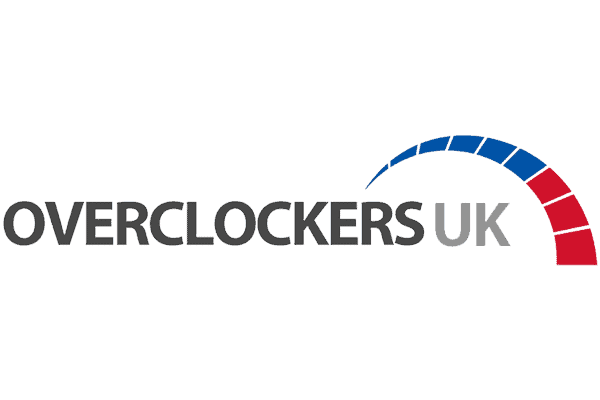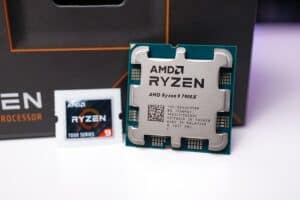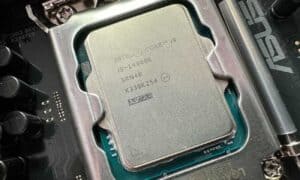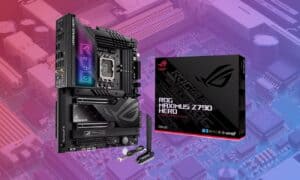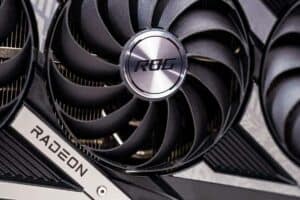Best CPU for MK1 – our top picks for Mortal Kombat 1
The very best CPU for MK1 - Don't cause a fatality on your CPU.

WePC is reader-supported. When you buy through links on our site, we may earn an affiliate commission. Prices subject to change. Learn more
Mortal Kombat 1 is the upcoming fighting game that everyone is excited about, you might be ready to dish out fatalities, but is your PC ready? We’re going to take a look at the best CPU for Mortal Kombat 1.
Thankfully, the system requirements aren’t too heavy for MK1, and the same can be said for the CPU requirements so it’s likely you won’t lose a limb paying for a new CPU, at least not outside of the game, anyway.
Best CPU for Mortal Kombat 1
We have 6 of the best-fitting CPUs for the upcoming MK1, which is set to release on the 19th of September. So you only have a few days left to ensure your CPU is adequate enough to handle the game.
If you’re looking for the best GPU for MK1, then you’re in luck. We can help you there too.
Best CPU for MK1 – Intel Core i9-13900K
It may seem disproportionate but as always, if you want the absolute best, you can’t do better than the absolute best.

Intel Core i9-13900K
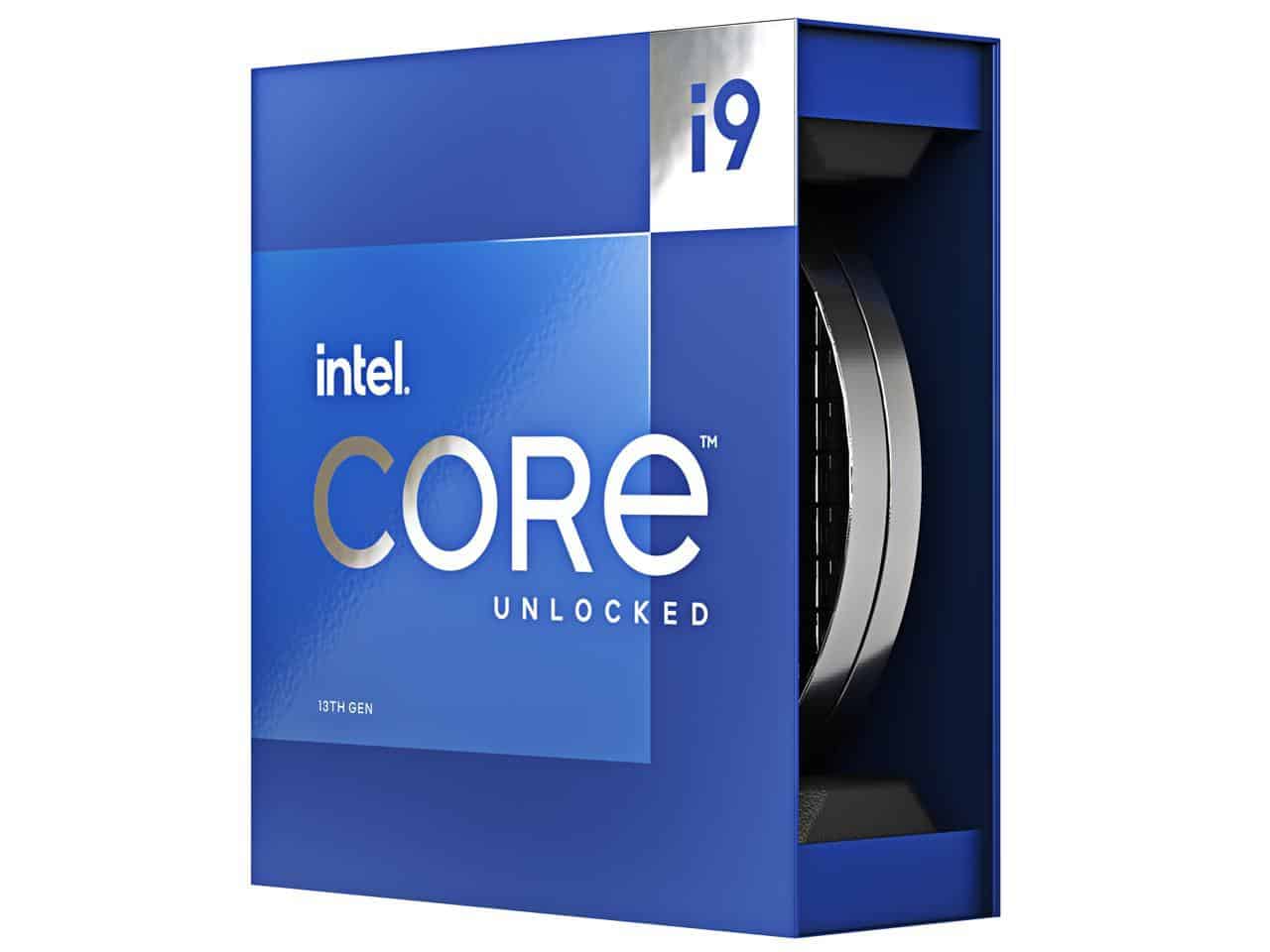
Cores
24
Threads
32
Base speed
P-cores 3 GHz / E-cores 2.2 GHz
Boost speed
P-cores 5.8 GHz / E-cores 4.3 GHz
Cache
36MB
TDP
125 W / 253 W boost.
- Powerful single and multi-core performance
- High boost speeds
- improved L2 cache capacity
- 32 logical processors
- pricey
- runs VERY hot
The i9-13900K is an extremely powerful CPU that outperforms its competition. With its 24 cores and 32 threads, it excels in both single and multi-core tasks, securing its place at the top for multi-threaded performance after a long time.
The 13900K consumes 125 W of power at its base level and 253 W at its peak. This represents a significant increase in power compared to the previous Alder Lake CPUs, but it also comes with a massive performance boost.
The 13th-generation Raptor Lake CPUs show notable improvements, with single-core performance increasing by up to 15% and multi-core performance by up to 41%. What’s great is that you can enjoy this enhanced performance without needing to upgrade your motherboard, although upgrading does offer its own advantages.
This time, the L2 CPU cache has been doubled, allowing the CPU to access larger and faster storage. This means the CPU can process instructions quickly without getting slowed down by a backlog. The 13900K is impressively fast, boasting a core speed of up to 5.8 GHz, making it the fastest on the market currently.
This CPU is expensive, but it is the very best. Some might call it overkill for MK1, and whilst that may be true, it definitely is the best CPU on offer, we like to call it “preparedness”
Runner up CPU for MK1 – Ryzen 9 7900X
AMD Ryzen 9 7900X
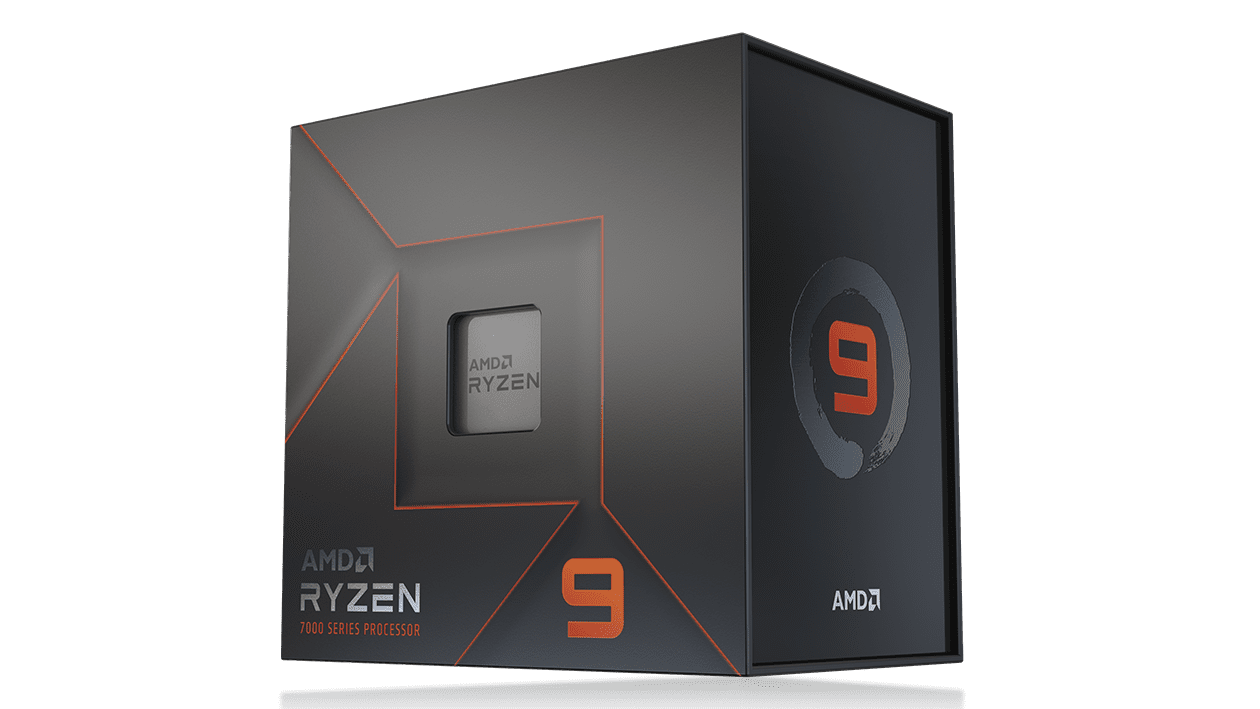
Cores
12
Threads
24
Base speed
4.7GHz
Boost speed
5.6GHz
Cache
L3 64MB
Socket
AM5
- Incredible performance
- High performance pew Watt
- Interesting IHS
- Cooler than other 7000 series CPUs on average
- A little pricey
- Hard to keep cool
The 7900X is part of AMD’s newer Zen 4 architecture, and it brings a significant boost in performance to the new AM5 platform. This upgrade is a big step forward for the 7000 series, thanks to the AM5 socket that supports both DDR5 and PCIe Gen 5.
With its 8 cores and 16 threads, the Ryzen 7900X is a powerful CPU that can handle both multi-core and single-core tasks really well, thanks to its impressive 5.6 GHz boost clock speed. AMD has made a substantial improvement in performance this time, hoping to compete effectively with Intel.
They’ve also doubled the cache this time, going from 512KB to 1MB per core. This means better handling of instructions and a reduced chance of the CPU getting stuck with too many instructions, which could slow it down.
Now, when it comes to power, the 7900X uses 170 W at its base speed and 230 W at its boost speed. Unfortunately, this means it can get quite hot, similar to the 13900K. It seems that CPU cooler technology is struggling to keep up with the increased power in these new CPUs.
Overall, the 7900X is a fantastic CPU for gaming, and it’s also equipped to handle demanding tasks like content creation and streaming, making it a great choice for pairing with the RTX 4080 for high-end performance.
Again, this is a very powerful CPU, especially for MK1, but it’s much more affordable than the 13900K above it. This CPU is futureproofing at it’s finest.
Best Value CPU for MK1 – Ryzen 7 5800X3D
AMD Ryzen 7 5800X3D
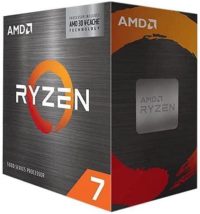
Cores
8
Threads
16
Max boost speed
4.5GHz
L3 Cache
96MB (64MB 3D V-cache)
TDP
105W
- Inexpensive
- Incredible performance
- 3D V-cache
- No cooler
- No native overclocking support
If you’re currently using an older AMD processor (which is quite likely), you might be interested in the Ryzen 7 5800X3D. This CPU has proven itself to be a gaming powerhouse, outperforming the top-of-the-line 12th-generation Intel CPUs.
The Ryzen 7 5800X3D is a remarkable piece of CPU engineering. It has taken the title of the “best gaming CPU” away from Intel’s previous generation core i9 12900K. However, there are a few reasons why it’s not our top pick today.
What sets the 5800X3D apart is its unique 3D V-cache. This CPU boasts eight multithreaded CPU cores and an enormous 96MB of AMD 3D V-cache, which is an unprecedented amount of cache for a CPU. Not even the next-gen flagships have as much cache as this CPU.
Now, this 3D V-Cache is something truly distinctive. Instead of stacking cache horizontally like a typical 2D cache, it stacks it vertically, thanks to new 3D printing technology. Hence, the term “3D cache.” This vertical stacking allows AMD to achieve a massive 96MB L3 cache with a total access speed of 2TB/s in its 5800X3D CPUs.
The 5800X3D does have slightly lower core speeds compared to its siblings, with a base speed of 3.4GHz and a max speed of 4.5GHz. These speeds are even lower than those of the regular 5800X. The reason for this is the instability of the 3D V-cache at higher clock speeds. This is also why overclocking is disabled on this CPU by default.
This CPU is pretty inexpensive now thanks to the release of Zen 43D, and it’ll carry you through years of PC gaming. It meets the requirements of MK1 and more!
Best budget CPU for MK1 – Ryzen 5 5600X

AMD Ryzen 5 5600X
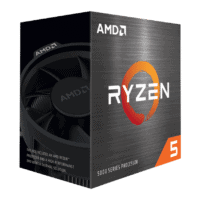
Speed
3.7GHz/ 4.6GHz
Core (Threads)
6/12
Socket
AM4
TDP
65W
The Ryzen 5 5600X offers fantastic value for your money. It has 6 cores and 12 threads, which makes it great for handling tasks that use multiple cores, and still does really well in tasks that rely on just one core.
With a speedy core running at 4.6GHz, the 5600X is excellent for gaming. Fast cores are essential for good gaming performance, and this CPU pairs perfectly with the RTX 3060, ensuring your GPU doesn’t get slowed down by the CPU.
What’s impressive is that the 5600X manages to deliver a lot of processing power while using very little energy. It has a tiny power requirement of just 65W, which is almost 200W less than some of the top CPUs out there. This means it offers fantastic performance for the energy it consumes.
Another advantage is that you won’t need to upgrade your motherboard when using the 5600X. It fits into the AM4 socket standard, which AMD has been using for several years. So, if you have a motherboard from the past 6 years or so, it should work with the 5600X without any issues.
Best Value last gen Intel CPU for MK1
Intel Core i7-12700K
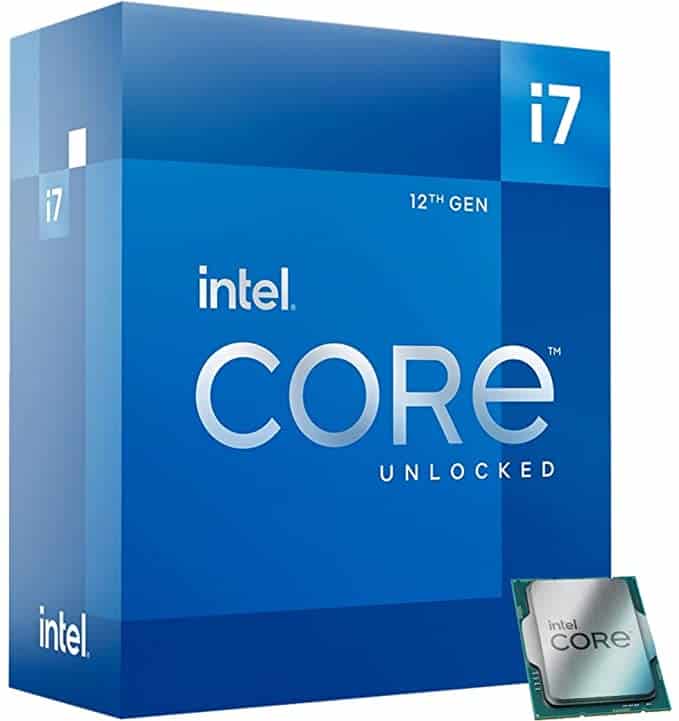
Boost clock speed (single core)
4.9 GHz
Total Cores / Threads
12/20
P-cores
8
E-cores
4
Socket
LGA 1700
Overclockable
Yes
The Core i7-12700K stands out as one of the best processors in the high/mid-level category. It not only boasts an impressive core speed but also benefits from LITTLE.big technology, which allows it to perform well even at higher screen resolutions while remaining efficient.
LITTLE.big is Intel’s version of a concept from ARM technologies, which involves a CPU having two types of cores: efficiency cores and performance cores, each responsible for different tasks.
The core boost speed reaches a blazing 4.9GHz, and each of the 12700K’s CPU performance cores can reach this speed. This high speed is more than capable of delivering excellent frame rates in games.
While the 12700K might be a bit pricier compared to some lower-end CPUs, its performance at this level is hard to beat, especially when it comes to handling higher screen resolutions.
Meet the minimum requirements for MK1 – Ryzen 5 2600
AMD Ryzen 5 2600
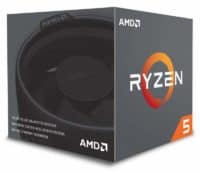
Speed
3.4Ghz – 3.9Ghz
Core (threads)
6/12
Socket
AM4
TDP
65W
The Ryzen 5 2600 stands out as a great CPU for a few good reasons. To start, It just about meets the CPU requirements for MK1, and it’s also quite budget-friendly, which is a big plus. You get solid performance without having to spend a lot of money, making it a smart pick for folks who want a capable CPU for MK1 without emptying their wallets.
Another strong point of the Ryzen 5 2600 is how well it handles multiple tasks at once. It’s like having six workers with twelve hands each – perfect for things like video editing, 3D design, and creating content. These tasks often need lots of computing power, and this CPU delivers.
What’s more, it comes with AMD’s Precision Boost tech, which is like a smart engine for your CPU. It adjusts how fast the CPU works based on what you’re doing. So, when you’re playing intense games or doing heavy-duty tasks, it speeds up to give you a smoother experience.
All in all, the Ryzen 5 2600 is a sweet deal, offering a mix of affordability, plenty of cores and threads, and clever performance tuning. It’s a solid choice for a wide range of computer needs. Not just gaming.
If you’re looking to play MK1 on the go, we have the Best laptop for MK1 that might interest you.
MK1 system requirements
There’s no particular reason we recommended more AMD CPUs than Intel ones. there’s just more to offer in lower price brackets with AMD. It has nothing to do with the system requirements of MK1, as far as we know, the game has no particular affinity for one or the other. unlike Starfriled did.
The system requirements for MK1 are as follows:
MK1 system requirements
MINIMUM:
Requires a 64-bit processor and operating system
OS: Windows 10 64-bit
Processor: Intel® Core™ i5-6600 | AMD Ryzen™ 3 3100 or Ryzen™ 5 2600
Memory: 8 GB RAM
Graphics: Nvidia GeForce® GTX 980 or AMD Radeon™ RX 470 or Intel® Arc™ A750
DirectX: Version 12
Storage: 100 GB available space
RECOMMENDED:
Requires a 64-bit processor and operating system
OS: Windows 10/11 64-bit
Processor: Intel® Core™ i5-8400 | AMD Ryzen™ 5 3600X
Memory: 8 GB RAM
Graphics: Nvidia GeForce® GTX 1080 Ti or AMD Radeon™ RX 5700 XT or Intel® Arc™ A770
DirectX: Version 12
Storage: 100 GB available space
These requirements were found on Steam’s official page for MK1.



